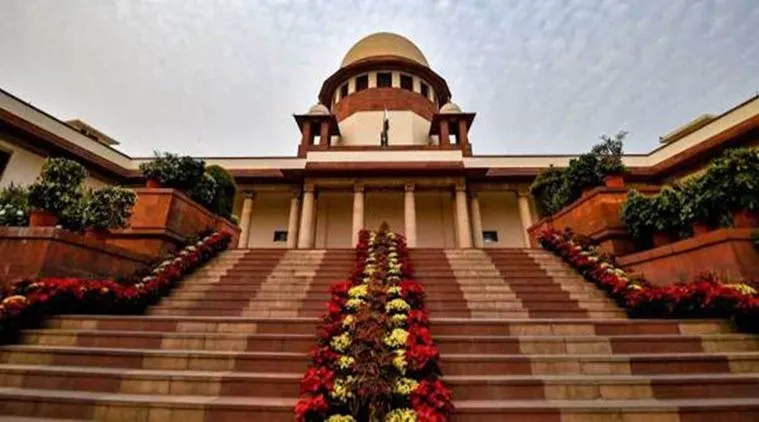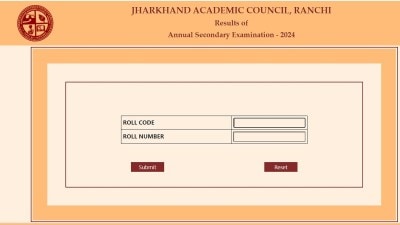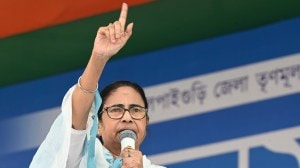- India
- International
File sent back, Government clears four judges for apex court
The central government has also appointed Advocates Vishal Mishra and Vishal Dhagat as judges of the Madhya Pradesh High Court.
 The appointments, made by President Ram Nath Kovind, will result in the Supreme Court functioning at its full strength of 31 judges. (File Photo)
The appointments, made by President Ram Nath Kovind, will result in the Supreme Court functioning at its full strength of 31 judges. (File Photo)
NEARLY TWO weeks after the Supreme Court Collegium recommended the elevation of four judges to the apex court, the Centre Wednesday cleared the names of Bombay High Court Justice B R Gavai, Jharkhand High Court Chief Justice Aniruddha Bose, Gauhati High Court Chief Justice A S Bopanna and Himachal Pradesh High Court Chief Justice Surya Kant.
The appointments, made by President Ram Nath Kovind, will result in the Supreme Court functioning at its full strength of 31 judges.
With the elevation of Justice Gavai, the Supreme Court will also have a judge from the Scheduled Caste community after about a decade. Going by the convention of seniority, Justice Gavai is likely to be the second Chief Justice of India from the community in 2025, after former CJI K G Balakrishnan who retired in May 2010.
The central government has also appointed Advocates Vishal Mishra and Vishal Dhagat as judges of the Madhya Pradesh High Court. Advocate Mishra, who had served as Additional Advocate General under the previous BJP government in Madhya Pradesh, is the younger brother of Justice Arun Mishra, the fourth most senior judge in the Supreme Court and a member of the Collegium. Justice Mishra was not part of the Collegium that recommended the elevation of Advocate Mishra on May 10.
Signals thaw in SC-Govt ties
It took a tense seven months for the elevation of Justice K M Joseph to be formalised last year, after the government cited issues related to seniority. The relatively smooth elevation of the four judges now may mark a thaw between the judiciary and the executive.
While recommending Advocate Mishra, the Collegium comprising Chief Justice of India Ranjan Gogoi, and Justices S A Bobde and N V Ramana, had agreed with the view taken by the Madhya Pradesh High Court Collegium. Their view was that Advocate Mishra should be elevated — despite him having not met the conventional minimum age criteria of 45, as defined in the Memorandum of Procedure, when he was recommended in September 6, 2018.
“As far as age factor of Shri Vishal Mishra is concerned, the Collegium is fully satisfied with the justification given by the High Court Collegium while recommending his name,” the Collegium had said. Supreme Court judge Justice Hemant Gupta headed the High Court collegium, which recommended Advocate Mishra.

On May 8, the Collegium headed by Chief Justice of India Ranjan Gogoi recommended the elevation of Justices Gavai and Surya Kant. On the same day, in a separate resolution, it reiterated its decision of April 12 to elevate Justices Bose and Bopanna.
“In exercise of the powers conferred by clause (2) of Article 124 of the Constitution of India, the President is pleased to appoint Shri Justice Bhushan Ramkrishna Gavai, Judge of the Bombay High Court, to be a Judge of the Supreme Court of India with effect from the date he assumes charge of his office,” the notification issued by the Law Ministry said.
Similar notifications were issued Wednesday evening for the three other judges elevated to the Supreme Court. According to seniority, Justice Surya Kant, whose parent court is the Punjab & Haryana High Court, is likely to succeed Justice Gavai as the Chief Justice of India in November 2025. Currently, Justice Gavai, whose parent court is the Bombay High Court, stands at serial number 8 in the combined seniority of High Court judges on an all-India basis and Justice Surya Kant at 11. Justice Bose, whose parent court is the Calcutta High Court, and Justice Bopanna, whose parent court is the Karnataka High Court, stand at 12 and 36, respectively.
The central government had earlier sent back for reconsideration the elevation of Justices Bose and Bopanna, with sources citing seniority and regional representation as the reasons. However, the Collegium had reiterated that “though inter-se seniority amongst Judges in their High Courts and their combined seniority on all-India basis should be given due weightage, merit should be the predominant consideration”.
On Justices Gavai and Surya Kant, the Collegium resolution said that while recommending their names, “the Collegium has taken into consideration combined seniority on all-India basis of Chief Justices and senior puisne Judges of High Courts, apart from their competence, conduct and integrity”.
The Collegium, it said, “has also kept in mind the desirability of giving due representation on the Bench of the Supreme Court, as far as possible, to all the High Courts as well as to all sections of the society including those belonging to SC/ST/OBC categories, women and minorities. We are also conscious of the fact that some High Courts have remained unrepresented in the Supreme Court”.
The other appointments made by the central government include that of Justice Dhirubhai Naranbhai Patel and Justice Ajay Kumar Mittal as Chief Justices of the High Courts of Delhi and Meghalaya, respectively; and the elevation of judicial officers Rajnish Bhatnagar, Asha Menon and Brijesh Sethi to the Delhi High Court, and Alok Verma to the Uttarakhand High Court.
Apr 19: Latest News
- 01
- 02
- 03
- 04
- 05






































